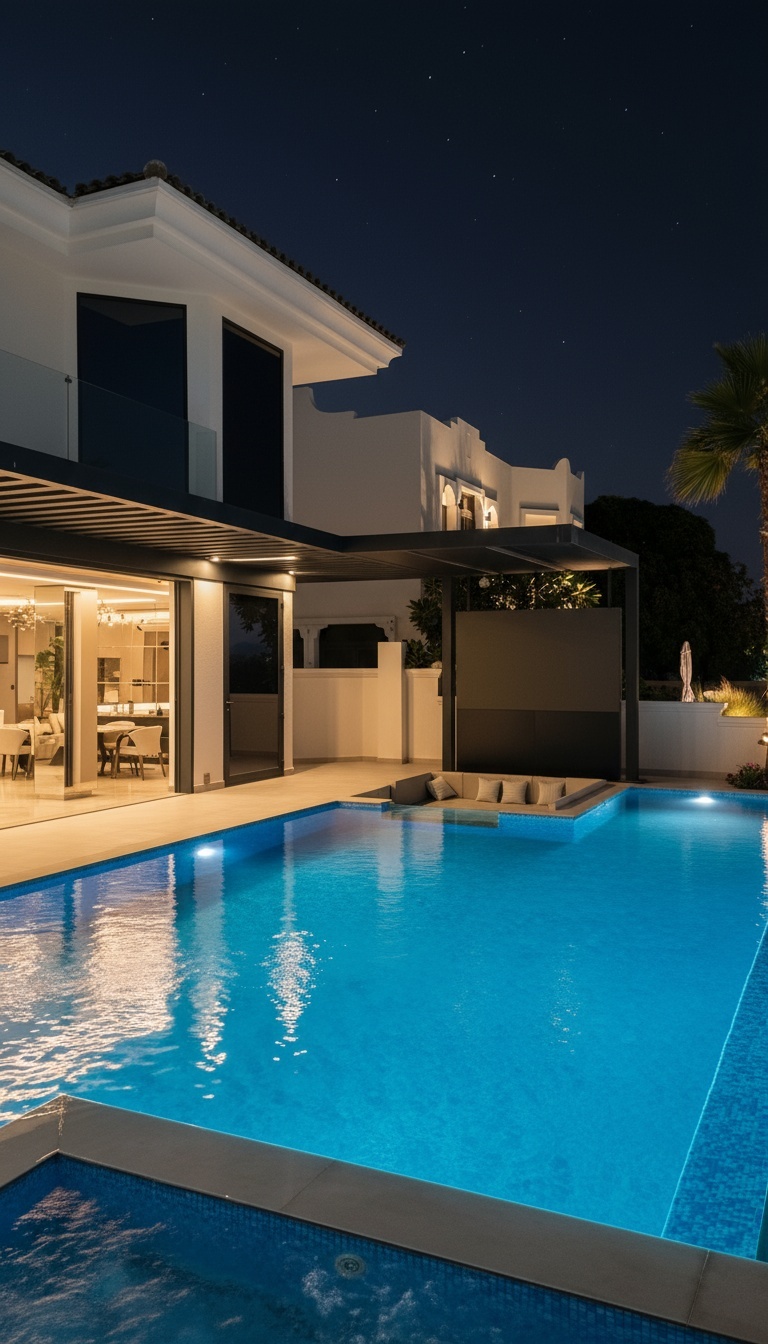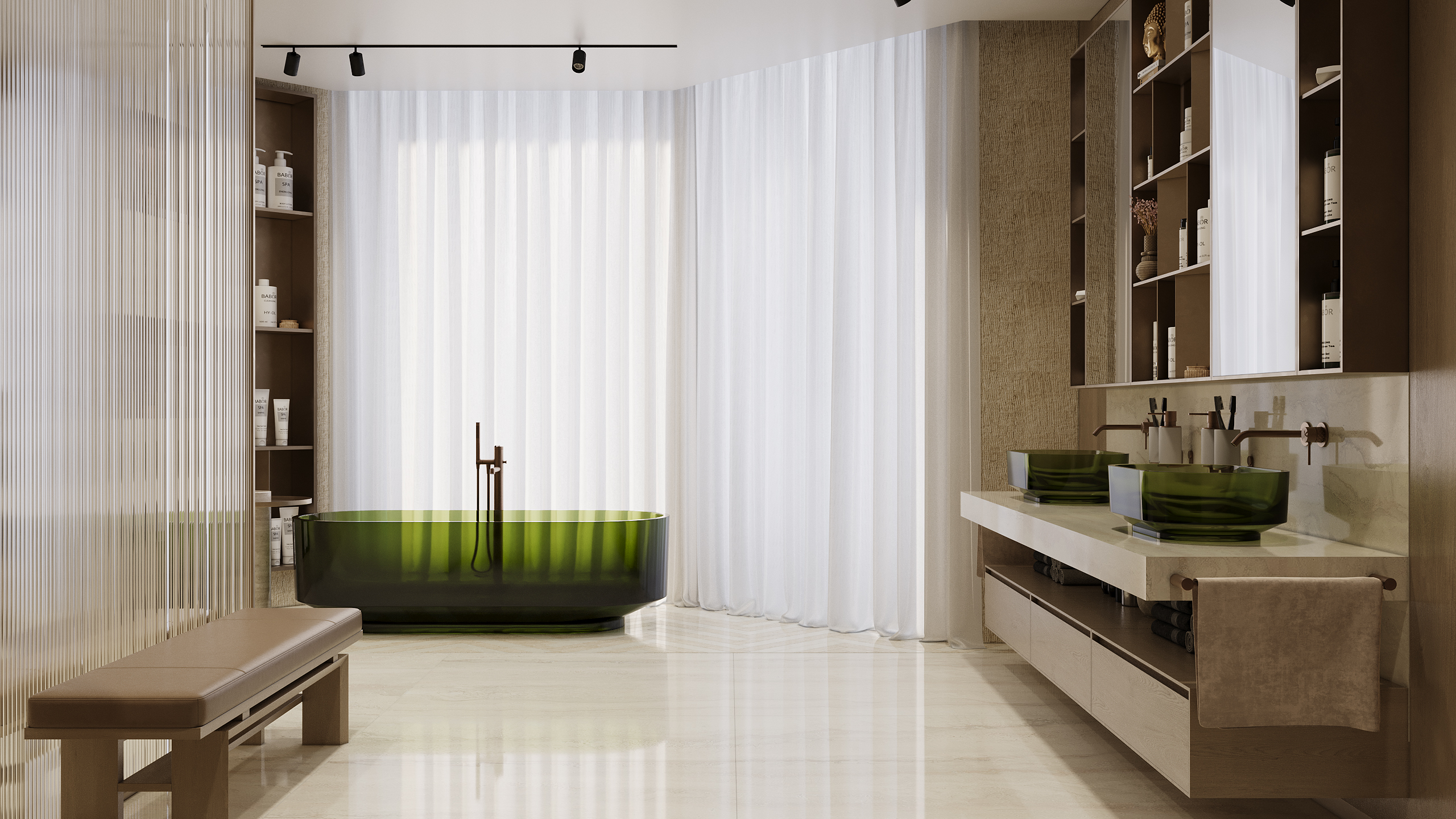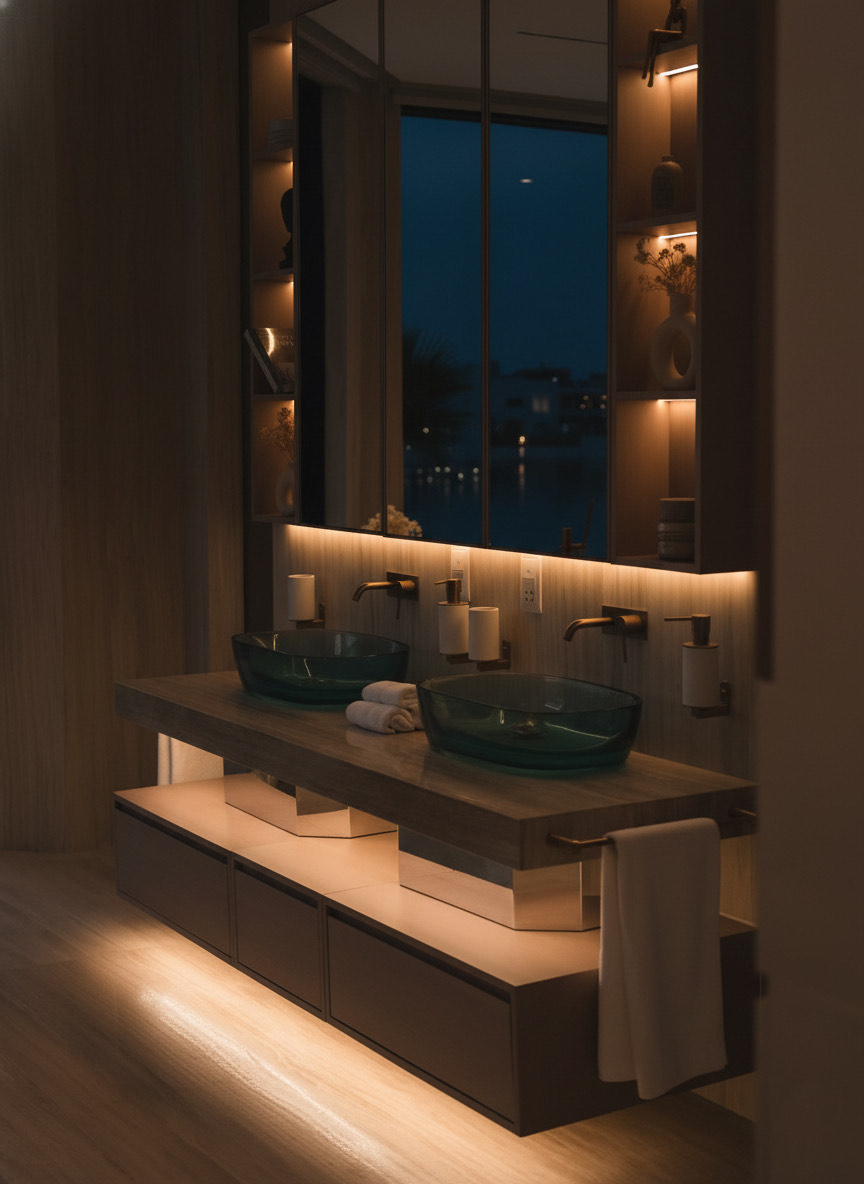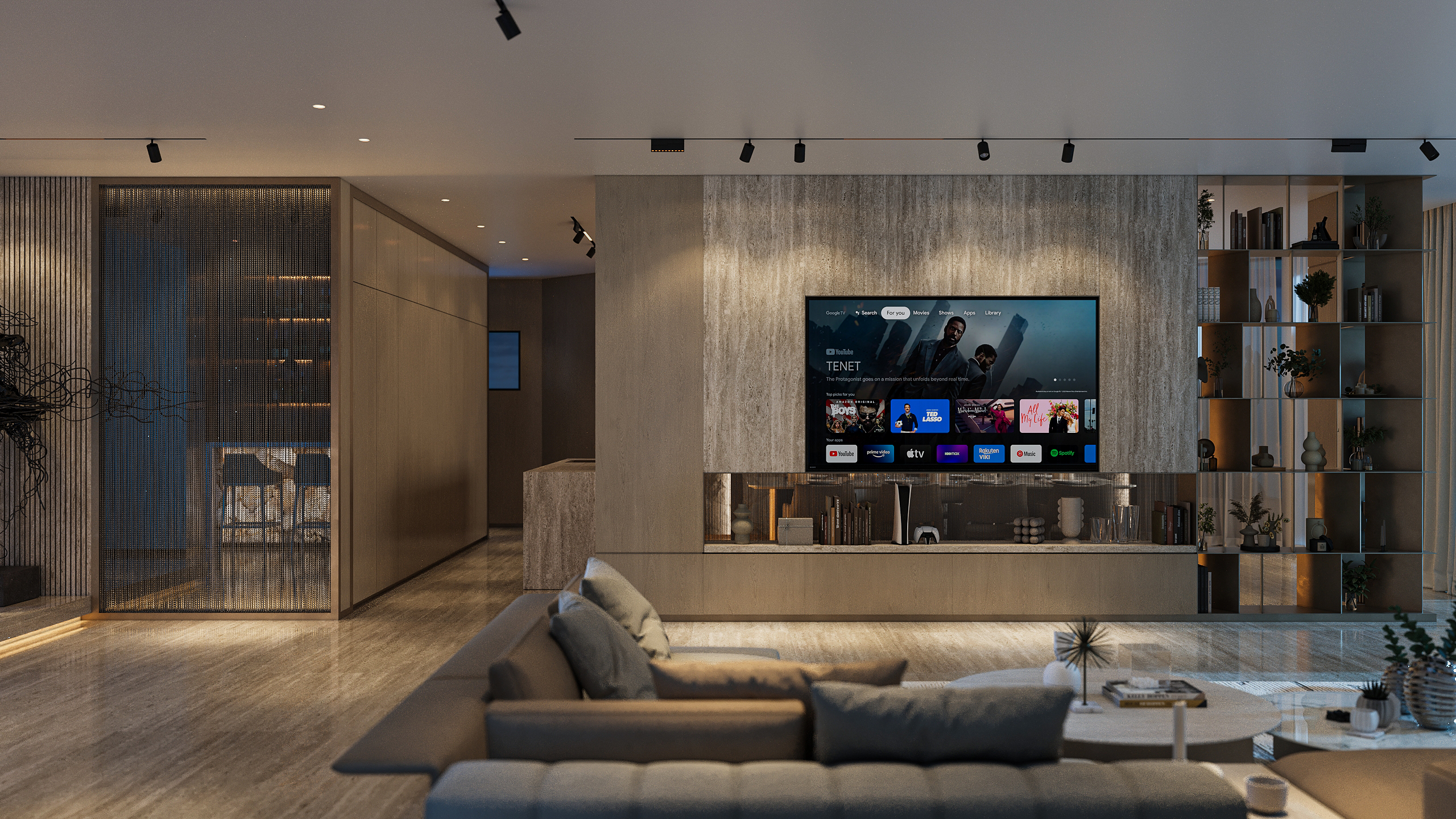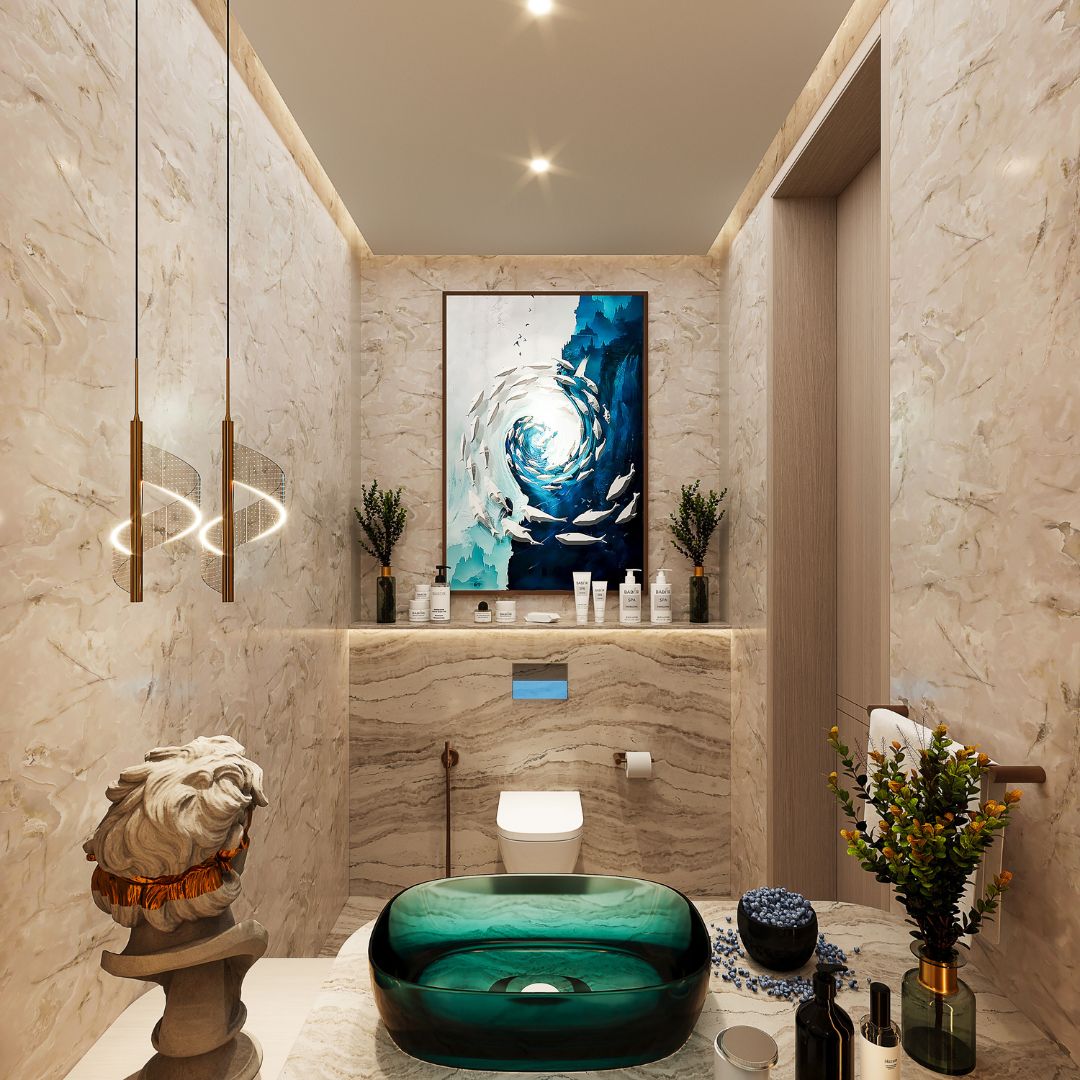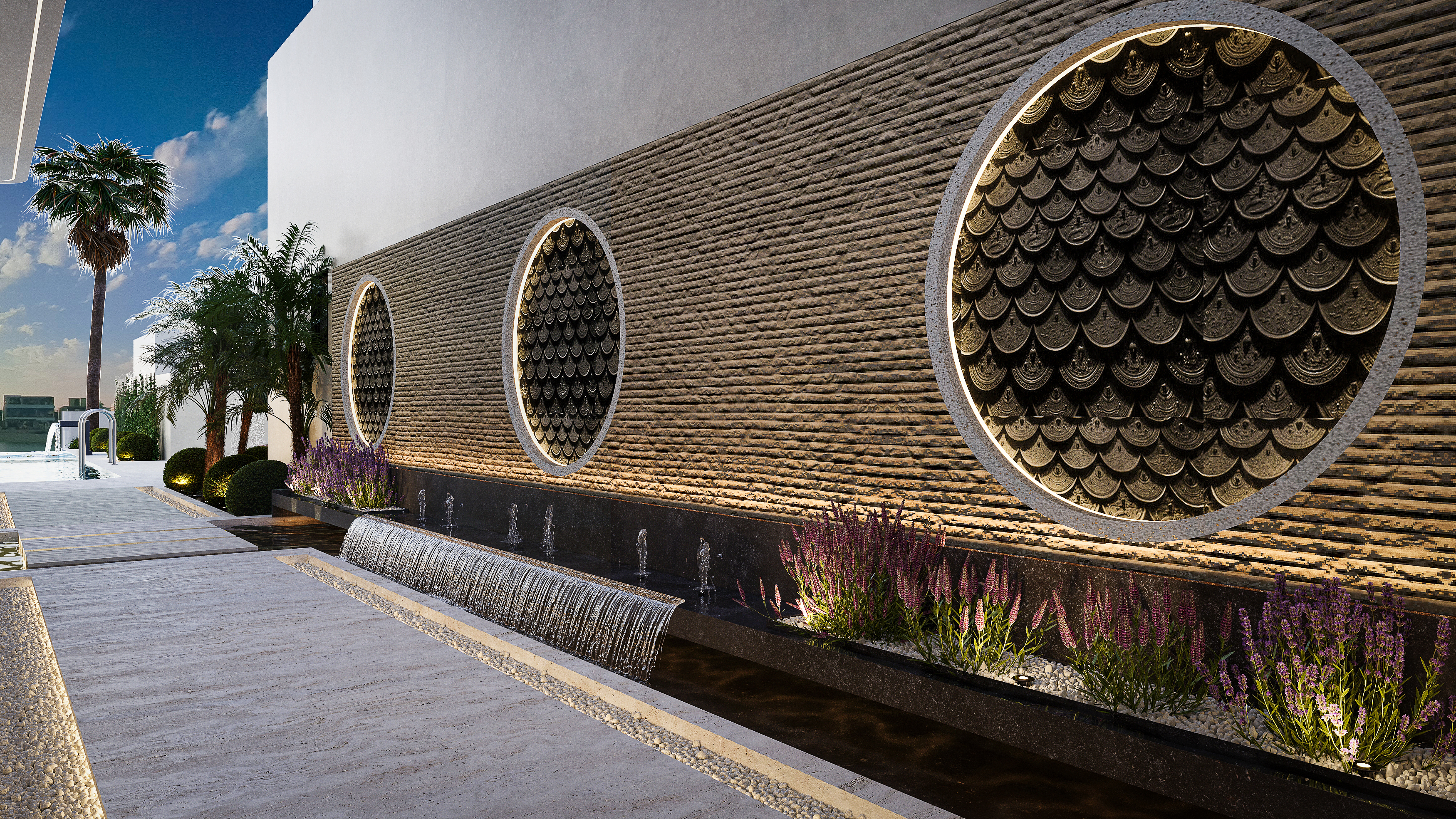
The Art of Tranquility: Designing a Zen-Inspired Outdoor Space
Finding a sanctuary of peace and tranquility is more important than ever. Your outdoor space can be transformed into a serene retreat where you can unwind, meditate, and reconnect with nature. Zen-inspired design, rooted in simplicity, balance, and natural beauty, provides the perfect framework for creating such a space. In this blog, we will delve into the essential elements of Zen design, inspired by the stunning image of a beautifully crafted outdoor area, to guide you in creating your own Zen oasis.
The Essence of Zen Design
Zen design originates from the principles of Zen Buddhism, which emphasizes simplicity, mindfulness, and harmony with nature. This design philosophy aims to create spaces that promote relaxation, clarity, and a deep sense of peace. The key components of Zen design include water features, natural materials, carefully chosen plants, and minimalist aesthetics.
Water Features: The Sound of Serenity
One of the most iconic elements of Zen-inspired outdoor spaces is the incorporation of water features. The gentle sound of flowing water has a calming effect, helping to drown out the noise of the outside world and inviting a sense of serenity. In the provided image, we see a beautiful wall with intricate circular patterns and a cascading water feature that adds a dynamic yet soothing element to the space.
Water features can range from elaborate fountains to simple, bubbling stones. The important thing is to choose a design that complements the overall aesthetic of your space and fits the scale of your outdoor area. Whether it's a small tabletop fountain or a large pond with koi fish, the presence of water can significantly enhance the tranquility of your Zen garden.
Natural Materials: Embracing Earthly Elements
Zen design is heavily influenced by nature, and using natural materials is key to achieving an authentic look and feel. Stone, wood, bamboo, and gravel are commonly used to create a sense of connection with the earth. In the image, the use of textured stone walls and the smooth pathway lined with pebbles exemplify how natural materials can be seamlessly integrated into the design.
Consider incorporating wooden elements such as benches, pergolas, or decking to add warmth and a natural touch. Bamboo, a symbol of strength and flexibility, can be used for fencing, privacy screens, or even as living plants. Gravel or sand paths not only provide a practical walking surface but also add to the minimalist and organic aesthetic of the space.
Plants: Cultivating a Green Haven
Plants play a crucial role in Zen gardens, symbolizing life, growth, and renewal. The selection of plants should be deliberate, focusing on those that convey a sense of calm and simplicity. In the image, we see a variety of greenery, including palm trees and neatly trimmed shrubs, contributing to the lush and serene atmosphere.
When choosing plants for your Zen garden, consider evergreens, moss, ferns, and bamboo for their low-maintenance and tranquil qualities. Japanese maples, with their delicate leaves and graceful form, can add a touch of elegance and seasonal interest. Additionally, flowering plants like lavender or cherry blossoms can provide subtle pops of color and fragrance, enhancing the sensory experience of the garden.
Minimalist Aesthetics: Less is More
A fundamental principle of Zen design is minimalism. The goal is to create a space free of clutter and distractions, allowing you to focus on the present moment and the beauty of your surroundings. The image showcases a clean and uncluttered design, with carefully placed elements that emphasize simplicity and order.
To achieve a minimalist aesthetic, start by decluttering your outdoor space. Remove any unnecessary items and focus on a few key pieces that have both functional and aesthetic value. Choose furniture with clean lines and simple forms, and avoid overly ornate or busy designs. The use of neutral colors, such as whites, grays, and earth tones, can further enhance the sense of calm and simplicity.
Lighting: Illuminating Tranquility
Proper lighting is essential in creating a Zen-inspired outdoor space. Soft, ambient lighting can transform your garden into a tranquil retreat, perfect for evening relaxation or meditation. In the image, the subtle lighting highlights the textures of the stone wall and the flowing water, creating a serene and inviting atmosphere.
Consider using lanterns, string lights, or LED fixtures to provide gentle illumination. Pathway lights can guide your steps and create a sense of order and balance. Solar-powered lights are an eco-friendly option that can be easily integrated into the garden without the need for electrical wiring. The key is to avoid harsh, bright lights and opt for soft, warm tones that enhance the natural beauty of the space.
Creating Zones for Meditation and Relaxation
A well-designed Zen garden should include designated areas for meditation and relaxation. These zones can be created using various elements such as seating arrangements, platforms, or secluded nooks surrounded by plants. In the image, the presence of comfortable seating and a peaceful environment invites you to sit, relax, and reflect.
Consider adding a meditation platform or a quiet corner with cushions and mats where you can practice mindfulness or simply enjoy the tranquility of your garden. Incorporate natural elements like rocks or sand raked into patterns to create a Zen rock garden, a traditional feature that symbolizes harmony and balance.
Conclusion
Designing a Zen-inspired outdoor space is about more than just aesthetics; it's about creating an environment that fosters peace, relaxation, and a deep connection with nature. By incorporating elements such as water features, natural materials, carefully chosen plants, minimalist aesthetics, and soft lighting, you can transform your outdoor area into a serene retreat.
The stunning image we explored serves as a perfect example of how these elements can come together to create a harmonious and tranquil space. Whether you have a sprawling garden or a small patio, the principles of Zen design can be adapted to fit any size and style, allowing you to create your own sanctuary of calm and serenity.
So, take inspiration from the beauty of Zen design and embark on the journey to create your own peaceful oasis. In doing so, you'll not only enhance the beauty of your outdoor space but also cultivate a sense of tranquility and mindfulness that can enrich your everyday life.

